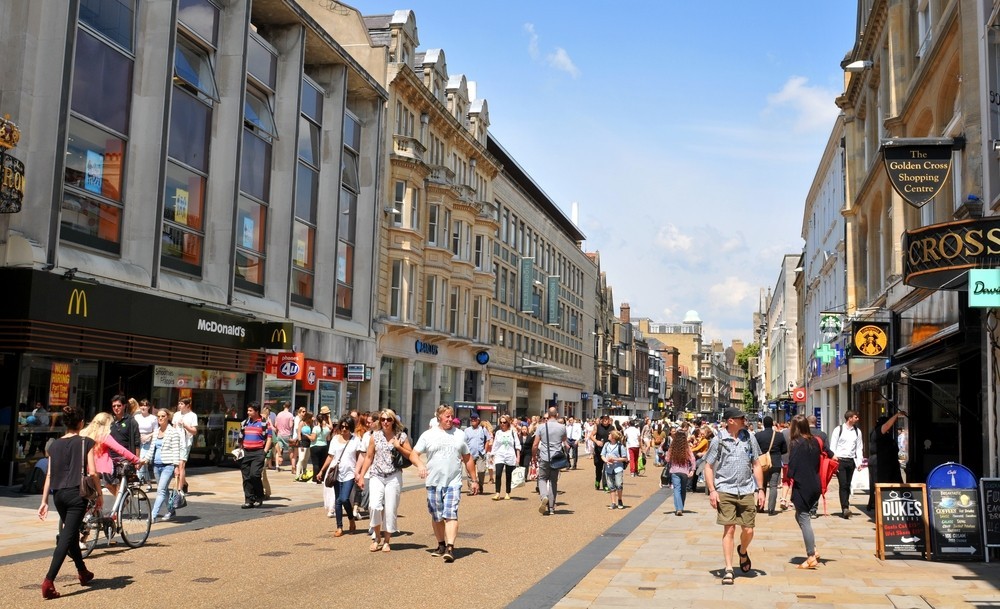
Corporate distress on the rise across all sectors that rely on consumer spending
Following an extremely challenging first quarter for the UK high street, plagued by high profile administrations, unseasonably poor weather, declining footfall and weak consumer spending, new research from Begbies Traynor, the UK’s leading independent insolvency firm, reveals that nearly 43,000 retailers ended the period in a state of ‘Significant’ financial distress.
According to Begbies Traynor’s Red Flag Alert research for Q1 2018, which monitors the financial health of UK companies, 42,958 retailers were experiencing ‘Significant’ financial distress at the end of March 2018, up 21% compared to the same period last year (Q1 2017: 35,555).
Of these businesses, General Retailers saw the largest increase in distress (up 25% year on year) with 30,668 companies ending the quarter in ‘Significant’ financial distress, as consumer discretionary spending continued to fall - experiencing its worst quarterly performance since Q4 20121 - while high street footfall decreased by 8.6% in March alone2, as considerable levels of snowfall kept many would-be shoppers at home.
In contrast, the UK’s Food and Drug Retailers, whose products are more widely regarded as essential purchases by most households and are therefore less weather-dependent, saw a less marked deterioration in their corporate health over the period, with 12,290 businesses in ‘Significant’ distress; up just 11% over the past 12 months.
However, it is not only the retail sector that is showing worrying signs of stress. According to the data, all sectors of the economy which are reliant on consumer spending experienced an increase in financial distress over the period, as consumers continued to cut back on non-essential spending.
Excluding Retail, the Bars & Restaurants sector had the most companies in ‘Significant’ financial distress (up 9%, to 16,640 firms), followed by Leisure and Cultural Activities (up 34% to 12,143 businesses), Hotels & Accommodation (up 13% to 4,947 companies) and Travel & Tourism (up 25% to 3,722 businesses in distress).
According to Begbies Traynor, considerable overcapacity within these consumer-facing industries has forced many businesses to implement aggressive pricing models in order to retain customers, while margins continue to be squeezed by higher costs associated with the National Living Wage and Apprenticeship Levy.
Julie Palmer, Partner and retail expert at Begbies Traynor, said:
“The UK high street has been having a torrid time of late, with the Beast from the East, growing competition from online rivals, higher staff costs, rising business rates and declining consumer spending, pushing many retailers to the point of no return.
“Almost weekly we hear news of another major retailer that is struggling - from the recent administrations of Maplin and Toy ’R’ Us, to Carpetright’s closure of a quarter of its stores and the recent CVAs of New Look and Select - indicating that even the most established brands are failing to entice customers through their doors.
“With competition on the high street fiercer than ever and sales volumes expected to be flat at best this year, those retailers with sophisticated delivery options and a strong multi-channel offering are likely to come out on top. At the same time, any businesses who are still playing catch-up on the technology front, or have failed to grow their customer base or invest in modernising legacy systems, are only going to lag further behind the pack.
“However, there is a glimmer of hope on the horizon for the UK’s consumer-facing industries who have weathered the storm thus far. With inflation falling back, lower unemployment and real wage growth finally returning, we should hopefully see households start spending again as the weather improves.”
More Begbies Traynor News
Contact Begbies Traynor Group

You're in Safe Hands
News Archive